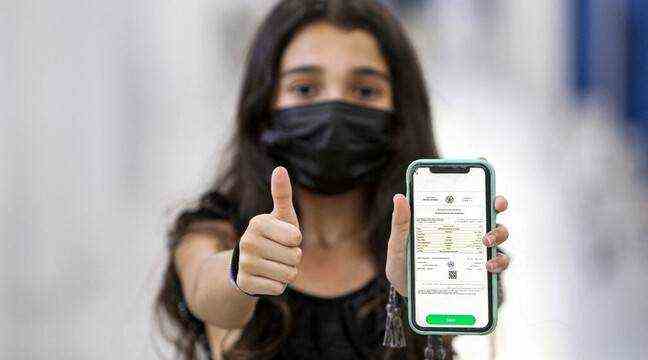The French exception did not last long. During his speech on July 12, President Emmanuel Macron announced almost unprecedented health measures in Europe, with presentation of a complete vaccination schedule, or a PCR-antigen test, mandatory before entering places of life daily: auditorium, cinema, café, restaurant, etc. No other country has so far extended its health pass to such frequent events.
Less than two weeks later, the exception has become trendy. Italy, Greece, UK and Portugal have launched or planned their own health pass, while Denmark or Austria already had it. Of course, this sesame does not always have the same name depending on the country, and does not always cover the same places, national specificities oblige. But all the same, the extension of the health pass, which might have seemed absurd not a month ago, is on track to become more democratic throughout Europe.
The fourth wave and the lack of an alternative
So what happened? First of all, and this is the main point, a particularly strong fourth wave, due to the Delta variant. According to some studies, this variant is 60% more transmissible than the Alpha variant, itself 50 to 74% more transmissible than the original strain of Covid-19. In fact, European countries are forced to look for a way to stop the outbreak of cases, and preferably a way other than strict confinement, costly both socially and economically – especially in the middle of summer.
For the doctor specializing in public health Hélène Rossinot, the health pass is essential mainly, not thanks to the inspiration of France, but simply by the massive arrival of vaccines. “As long as there was a shortage of vaccine, the health pass was impossible to set up. Today, it is ultimately a fairly logical tool, and it is natural to see the measure extend, ”explains the caregiver, who thinks that the process will eventually apply throughout the European Union.
The European circle
Democratization is all the easier since “the European population travels especially during the holidays”, recalls the doctor. Because let’s not forget, the very first health pass project was indeed standardized across Europe, in order to avoid travel restrictions and quarantines within the 27. “There were first and foremost initiatives and the competences of the European Union in terms of health unit, to try to harmonize the various restrictions between the borders ”, recalls Guillaume Fontanieu, specialist in health law.
After this idea of a European health pass, countries have therefore adopted the tool to create national versions which tend more and more to be re-harmonized on a European scale … “But it is very difficult to know if it is is about legislative inspirations from one or the other, and even more about knowing who inspired whom, or if it is a series of similar ideas falling at the same time, and which would have taken place even without the other countries ”, points out the expert. Especially since as Hélène Rossinot said, the health pass – and before it confinement – was logically necessary. More than a fad, it will ultimately be a rather obvious path – or constrained by events, as desired.
A virtuous but limited pass
The health pass has the virtue, unlike confinement, of having a beneficial effect in the long term, by massively increasing vaccination. It suffices to see the French case, where the first injections doubled the week of Emmanuel Macron’s announcement compared to the previous four. However, the European countries are all more or less confronted with the phenomenon of vaccine glass ceiling – namely that the vast majority of volunteers have received their doses – the health pass makes it possible to boost the vaccination rate of the population by several precious%. , useful data to counter this wave, but also the following potentials, where containment only prevents the wave in progress.
Still, if the measure is becoming more and more popular, it is far from perfect. End of enthusiasm at Hélène Rossinot: “The negative test of less than 48 hours is a hell of a hole in the racket, it does not say anything about the status of the person when he is in the public place. And the lack of identity checks risks making the measure much easier to circumvent ”. Israel, a pioneer country in terms of vaccination against the coronavirus, is considering this Friday to ban certain public places to the unvaccinated, even with negative tests. A step that the European Union will perhaps take one day. With the same voice, or each in their own way, to the rhythm of trends.

